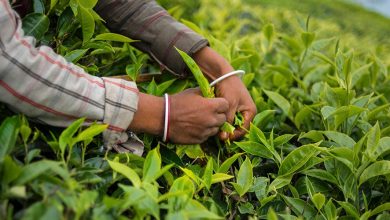Beekeeping boom drives Coast economy, spurs conservation

COAST REGION: A QUIET economic revolution is unfolding in Coast Region, driven not by industry or technology, but by the steady hum of bees.
Beekeeping, once considered a marginal rural activity, is emerging as a powerful engine for local livelihoods, environmental conservation and regional economic growth.
Increasing hive numbers and soaring honey production are signalling that this age-old practice is rapidly transforming into a commercially viable and socially impactful sector. Recent data from the Coast Region highlights the sector’s rapid growth.
Honey production has soared from 7,582.5 kilogrammes in 2023/24 to 12,807.5 kilogrammes in 2024/25, a remarkable increase achieved in just one year.
This expansion reflects both the rise in hive numbers—from 10,065 to 10,532—and the growing professionalisation of the sector. Of the 3,509 registered beekeepers, 3,313 operate in organised groups, signalling a shift toward structured production, while 196 work individually.
Rufiji District stands out as the region’s honey powerhouse, contributing 1,796 kilogrammes in the latest season. The Regional Beekeeping Officer Fatma Sumbuka attributes Rufiji’s success to its rich natural forests and woodlands, which provide year-round forage and water for bees.
In contrast, Mafia District reported zero honey production, underscoring the influence of local environmental conditions and the availability of support services.
ALSO READ: TAMWA launches beekeeping project in Kibaha
According to Coast Regional Administrative Secretary Ms Pili Mnyema, the growth is no accident. It results from coordinated efforts among local government councils, the Tanzania Forest Services (TFS) and organised groups of beekeepers.
“Beekeeping has become one of the key sectors contributing to household income and the regional economy,” she said, saying that the increase in both hive numbers and honey output reflects the region’s development progress. The economic potential of the sector extends beyond honey.
Entrepreneurs like Mohamed Hamis, Chairperson of the Mikongweni Green Development Group in Rufiji, are demonstrating how beekeeping can transform livelihoods.
ALSO READ: TAMWA launches beekeeping project in Kibaha
Hamis notes that capital constraints remain a major barrier, with commercial hives costing tens of thousands of shillings. To overcome this, local innovators have converted old metal cash boxes into functional hives, purchased for about 6,000/-, allowing more villagers to participate in honey production.
Value addition presents another opportunity to boost income. Training in honey processing, branding and packaging can increase earnings for small producers. Products such as beeswax candles, body oils and protective beekeeping gear not only fetch higher market prices but also encourage sustainable business practices.
TFS-Manyoni Chief Conservator, Central Zone Beekeeping Farm, Mr Seleman Igosha pinpointing that beekeeping supports crop pollination, enhances biodiversity and promotes sustainable land use, making it both an economic and ecological investment. However, challenges persist.
Climate change, deforestation, slash-and-burn agriculture and unregulated livestock grazing threaten bee habitats, reducing access to flowering plants and impacting honey yields. Mr Igosha said that environmental education is critical to shift public perception, demonstrating that beekeeping is not merely a rural pastime but a tool for conservation and agricultural productivity.
The sector is also attracting new actors and broadening its social impact. The Tanzania Media Women’s Association (TAMWA) plans to launch a pilot project in Kibaha District with 200 hives, targeting women and rural families.
Executive Director Dr Rose Reuben said beekeeping offers reliable, long-term income while promoting environmental stewardship. Such initiatives highlight how the sector is evolving from small-scale subsistence to a commercially viable and socially inclusive enterprise.
Looking ahead, stakeholders agree that scaling the sector requires strategic interventions: Expanding training on hive management, improving market access, facilitating affordable equipment and financing as well as integrating beekeeping into national conservation and agricultural strategies.
The Coast Region’s beekeeping boom demonstrates what is possible when innovation, institutional support and natural resources converge.
From the villages of Mikongweni to regional policy tables, beekeeping is no longer just about honey—it is a model of economic transformation, environmental conservation and social empowerment. Nationally, the country exported over 6,000 tonnes of honey earning 69.1bn/- over the past four years.
In the same period (2021–2024), the country also witnessed an increase in annual honey production, rising from 31,179 tonnes to 33,276 tonnes, according to TFS. The main honey-producing regions, including Tabora, Kigoma and Katavi, are particularly notable for their substantial contributions, while other areas such as Singida,
Mbeya, Songwe, Ruvuma, Morogoro, the Coast, Kilimanjaro, Tanga and Dodoma also play important roles in the sector. As the sun sets over Rufiji’s forests, the soft buzz of bees signals a future of possibility for rural communities, local markets and the wider Tanzanian economy.





